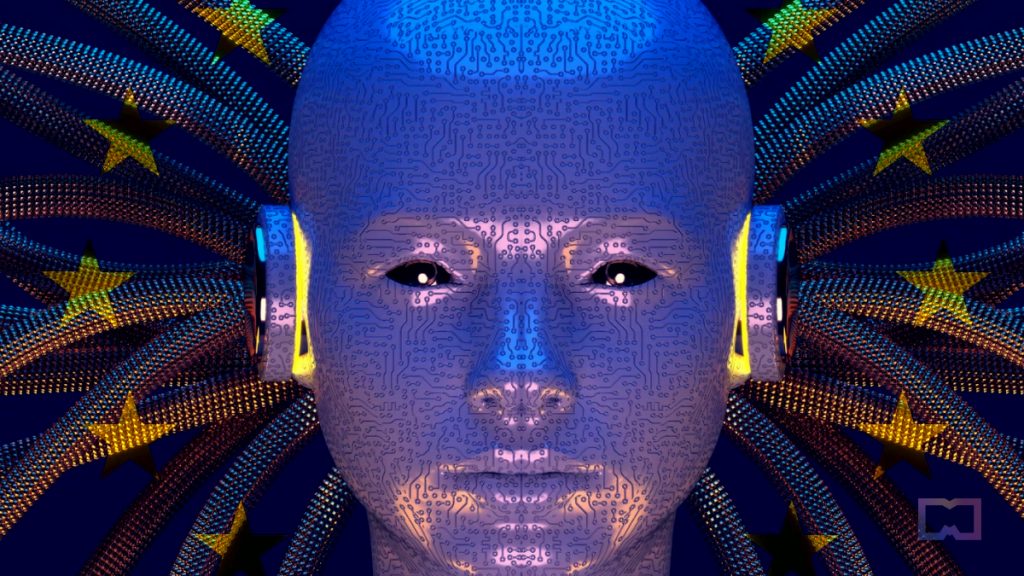China and the EU are vying to establish themselves as leaders in the area of AI regulation.
In Brief
Efforts are underway in both China and the European Union to create comprehensive regulations for artificial intelligence technologies.
China is keen on establishing a licensing framework for generative AI, requiring businesses to report their products, conduct security evaluations, and align with socialist principles.
The European Union has laid out a proposal for a regulating structure for AI applications, though certain critics argue that these measures might be overly restrictive.

The Cyberspace Administration of China (CAC) is looking to strengthen its regulations around generative AI by introducing a licensing mandate, reports the Financial Times. reported This month, the authority overseeing China's internet is expected to launch the licensing framework aimed at regulating content.
An insider informed the Financial Times that if Beijing intends to assert total control and censorship over AI-generated materials, companies will need prior consent from the authorities. This person emphasized that the regulations need to find a middle ground so that they don’t stifle domestic tech aspirations.
As highlighted by Matt Sheehan from the Carnegie Endowment for International Peace, this marks a significant moment where Chinese authorities face a dilemma between two essential objectives of the Communist Party: securing their position in the AI sector while managing the flow of information.
Angela Zhang, a law professor at the University of Hong Kong, pointed out that China's regulations on AI are primarily centered around controlling content.
In April, China issued draft regulations Companies will be required to notify authorities about their generative AI offerings within ten business days of their rollout.
According to the proposed guidelines, businesses offering generative AI services must ensure that their platforms refrain from generating content that could be deemed misleading, harmful, or that violates privacy or intellectual property rights.
Before making their services available to users, these companies must carry out security checks and submit their findings to regulatory bodies. The CAC has instructed generative AI service providers to verify identities and manage users' data responsibly while imposing sanctions for any breaches. Furthermore, AI companies are expected to ensure that their offerings conform to socialist values and update their technology every three months to mitigate the risk of inappropriate content appearing on their platforms.
Last month, a new regulation From the China Cyberspace Administration, 41 generative AI algorithms are required to secure licenses before they can operate widely. These algorithms underpin all 79 generative AI large language models in China that contain over a billion parameters.
Europe Introduces Rigorous AI Regulation Proposals
The European Union stands out as a significant contender in the realm of AI governance, proposing a thorough framework for regulating AI applications. Nevertheless, some industry experts and stakeholders warn that the EU’s strategy may be too limiting and could stifle innovation along with competitiveness.
The EU Parliament has proposed Updated proposals to the original AI regulation draft include bans on biometric surveillance and mandates for generative AI systems to disclose when they have created AI-generated content.
Moreover, organizations that utilize AI technologies will be required to inform about the copyrighted material they employ in training their systems and evaluate the repercussions of their potentially 'high-risk applications' on human rights and environmental concerns. Platforms like ChatGPT will need to aid users in discerning real from synthetic images and prevent the dissemination of illicit content.
A coalition of over 150 leaders from various industries, including giants like Meta, Renault, and Siemens, have written a letter has voiced their apprehensions to EU lawmakers regarding the AI regulation draft consensus reached in June. They argue that the proposed regulations could undermine Europe's technological independence and competitiveness while failing to address AI-related challenges effectively. They even quoted OpenAI's CEO, Sam Altman, who has previously stated that the company might consider exiting Europe should these regulations be enforced. He has advocated for a revision of the definition surrounding general-purpose AI systems and voiced opposition against the EU AI Act. mentioned European Legislators Have Greenlit Stringent Artificial Intelligence Regulations with the AI Act
Read more:
- Navigating Censorship AI Algorithms: How Chinese users are finding ways to bypass them
- Brad Smith, the President of Microsoft, shares insights on AI governance across Europe.
- , please be aware that the content on this page is intended for informational purposes only and should not be construed as legal, investment, financial, or any other form of advice. It is crucial to only invest what you can afford to lose and consult with a financial advisor if you're uncertain. For more details, we recommend reviewing the terms and conditions as well as the help and support sections provided by the issuer or advertiser. MetaversePost strives for accurate, impartial reporting, but market conditions may change without prior notice.
Disclaimer
In line with the Trust Project guidelines Agne is a journalist focused on the latest trends and developments within the metaverse, AI, and Web3 spaces for Metaverse Post. Her passion for storytelling drives her to conduct in-depth interviews with field experts, always in pursuit of captivating narratives. Agne holds a Bachelor's degree in literature and boasts a rich background in writing on a plethora of topics, from travel to art and culture. She has also dedicated her time as an editor for an animal rights organization, raising awareness of animal welfare issues. You can reach out to her at







